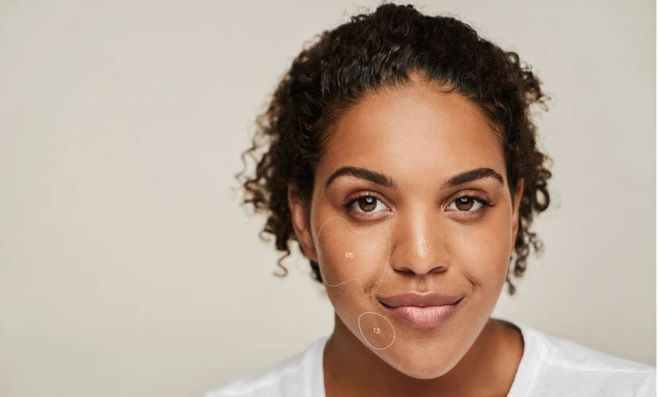q&a: does skin tone impact skin care?


Almost all skin care products and ingredients are formulated to target skin concerns regardless of the colour of the user's skin. And though these treatments are universally effective, there are some physiological differences to consider for people with more richly melanated skin. We sat with one of our Professional Skin Therapists, Nyssa Grays, to learn more.
How do we inclusively speak about skin care while still considering the physiological differences that come with varying melanin levels?
"Melanin is what gives your skin its unique colour. But 'melanin-rich' or 'skin of colour' within the skin care industry is still vague. Dermatologists and Skin Therapists alike use something called the Fitzpatrick Skin Phototype (FST) scale," shares Grays.
The FST scale categorizes melanin levels and how the skin responds to sun exposure starting at FST 1 to FST 6. FST 1 refers to very pale skin that does not tan and experiences sunburns very quickly, whereas FST 6 refers to deeper skin tones that don't generally experience sunburns. Grays further shares that "the FST scale is great because it doesn't assume ethnicities and cultures define skin tones. Skin tones vary across every demographic. And we look at skin science over skin tone at Dermalogica."
People often assume that 'darker skin,' or skin that is higher on the FST scale, isn't as sensitive as skin that is lower on the FST scale. Would you say that this is a myth or fact?
Grays shares that sensitivity isn't tied to skin tone. "Speaking from a personal and professional perspective, reactions from sensitivity often come hand in hand with redness, and that's harder to see on skin that's higher on the FST scale. This doesn't mean that it isn't sensitive". She encourages everyone to minimize irritation wherever possible. Simply put, irrespective of where your skin falls on the FST scale, inflammation isn't suitable for anyone.
We touched on the physiological differences of skin that is deeper on the FST scale- are there skin care qualms that people on this end of the spectrum generally face?
"This is so personal to every one of us and our skin care needs. But that said, skin that is higher on the FST scale is generally more prone to conditions like hyperpigmentation, keloids, etc. It is important to be mindful of this when getting treatments. For example, micro-needling works beautifully for some people. For others, it can be a trigger for keloids," shares Grays. She goes on to tell us that "inflammation is almost always an indicator of hyperpigmentation to come so you can take preventative measures by soothing inflammation amongst other things."
What are some ingredients or products you'd recommend for these needs?
"Lactic acid is great for these needs, even for users with sensitive skin types, because it's brightening, hydrating, and gentler than other AHAs like glycolic acid. Vitamin A is nature's retinol, and Vitamin C is a powerful antioxidant that also works beautifully for these needs, so I'd recommend exploring that with your Professional Skin Therapist as well. Ask them about our PowerBright, AGE Smart, and BioLumin-C systems in your next consultation," shares Grays. "Although our PowerBright line is the star of dealing with hyperpigmentation, smoothing, brightening, and increasing your skin's luminosity, our unsung hero is the UltraCalming line. People rarely consider using products that are anti-inflammatory and soothing for their skin to heal at optimal rates, so don't knock that when exploring products to add or remove from your routine," she further shares. As always, she tells us that the best way to ensure your skin care routine is customized to work for your specific needs is by scheduling a free virtual skin consultation with one of our Professional Skin Therapists.
Would you say that Vitamin C isn't the most effective to target hyperpigmentation then?
Grays shares that although Vitamin C is a powerful antioxidant ingredient that helps prevent aging, brightens your overall skin tone, and lessens the appearance of hyperpigmentation, it may not fully treat hyperpigmentation. "It's more of an enhancer," she says, "Because melanin is packed together more, hyperpigmentation takes longer to clear. Retinol and retinol-like ingredients like Vitamin A work better and quicker here since they speed up cell turnover. A chemical peel, like our Rapid Reveal Peel, can also be an effective addition to your routine to help with hyperpigmentation, but make sure you're using your sunscreen!" Because these products are exfoliating, we'd recommend exploring them as options with your Skin Therapist to ensure that they're a good fit for your skin type and needs.
Any final words of wisdom?
"Skin care products generally work the same. It really depends on your needs. But if there is anything I'll leave you with, it's this- sunscreen is your best friend. If you're not protecting your skin at the end of your routine, your efforts will be in vain. Sunscreen up!" says Grays.
